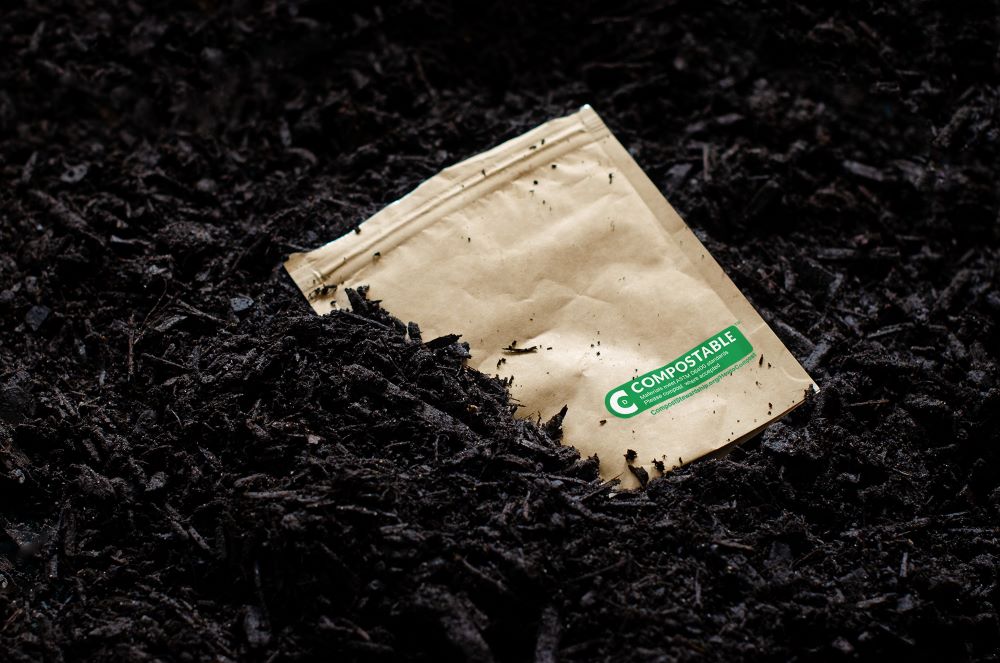As environmental concerns continue to rise, businesses and consumers alike are increasingly turning their attention to sustainable practices. One of the most promising solutions to the growing problem of waste is compostable packaging materials. These materials not only offer a more sustainable alternative to traditional plastics but also contribute to a healthier planet. This article explores the numerous benefits of compostable packaging materials and why they are essential for a sustainable future.

1. Environmental Impact Reduction
The most significant advantage of compostable packaging materials is their potential to reduce environmental impact. Traditional plastic packaging takes hundreds of years to decompose, contributing to the ever-growing problem of landfill waste. In contrast, compostable materials are designed to break down more quickly and safely, returning nutrients to the soil.
- Biodegradability: Compostable packaging is made from natural materials, such as plant starches, sugars, or cellulose, which can decompose within a few months under the right conditions. This rapid breakdown significantly reduces landfill contributions.
- Lower Carbon Footprint: The production of compostable materials typically generates fewer greenhouse gas emissions compared to conventional plastics, contributing to a reduction in the overall carbon footprint.
2. Soil Enrichment
Composting involves breaking down organic materials into nutrient-rich compost that can be used to enrich soil. When compostable packaging materials decompose, they contribute valuable nutrients back into the earth, promoting healthier soil and supporting plant growth.
- Nutrient-Rich Compost: The breakdown of compostable packaging results in organic matter that can enhance soil fertility, reduce the need for chemical fertilizers, and support biodiversity.
- Improved Soil Structure: Compost can improve soil structure, helping retain moisture and supporting healthy root systems for plants, which is crucial for sustainable agriculture.
3. Consumer Demand for Sustainability
As consumers become more eco-conscious, there is a growing demand for sustainable products. Businesses that adopt compostable packaging materials can tap into this trend and enhance their brand image.
- Attracting Eco-Conscious Consumers: Brands that prioritize sustainability through compostable packaging can differentiate themselves in a crowded market, attracting environmentally-minded consumers who value responsible practices.
- Building Brand Loyalty: By demonstrating a commitment to sustainability, companies can foster stronger relationships with customers, leading to increased loyalty and repeat business.
4. Compliance with Regulations
Governments around the world are implementing stricter regulations regarding plastic use and waste management. Companies that proactively adopt compostable packaging materials can stay ahead of these regulations and avoid potential fines.
- Future-Proofing Businesses: By transitioning to compostable options, businesses can align themselves with evolving regulations, ensuring compliance and protecting their reputations.
- Corporate Social Responsibility (CSR): Embracing compostable packaging materials can enhance a company’s CSR efforts, showcasing its commitment to sustainable practices and environmental stewardship.
5. Waste Management Efficiency
Compostable packaging can improve waste management systems by diverting materials from landfills and promoting composting initiatives.
- Enhanced Recycling Programs: By incorporating compostable materials into waste management systems, municipalities can develop more effective recycling and composting programs, reducing the burden on landfills.
- Encouraging Composting Infrastructure: The rise of compostable packaging can lead to increased investment in composting facilities, further promoting sustainable waste management practices.
6. Versatility and Innovation
Compostable packaging materials are highly versatile and can be used across various industries, from food packaging to cosmetics. Innovations in this field are continually expanding the possibilities for sustainable packaging solutions.
- Diverse Applications: Compostable materials can be used for a wide range of applications, including bags, containers, and films, making them suitable for various products and industries.
- Technological Advancements: Ongoing research and development are leading to new compostable materials and packaging designs, allowing businesses to adopt more innovative and sustainable solutions.
7. Encouraging Circular Economy
The shift towards compostable packaging is a crucial step towards achieving a circular economy, where resources are reused and recycled rather than discarded.
- Resource Recovery: Compostable materials contribute to a system where organic waste is returned to the soil, promoting resource recovery and reducing the need for virgin materials.
- Sustainable Production Practices: By incorporating compostable packaging into their supply chains, businesses can align with circular economy principles, reducing waste and promoting sustainability.
Conclusion
The benefits of compostable packaging materials extend far beyond their environmental impact. From enriching soil and supporting sustainable agriculture to meeting consumer demand and ensuring regulatory compliance, compostable packaging represents a vital step towards a more sustainable future.
For businesses looking to embrace these practices, partnering with a provider like Colorful Packaging can facilitate the transition to compostable solutions. By integrating compostable packaging materials into their products, companies not only enhance their brand image but also contribute positively to the planet. Embracing compostable packaging is not just a trend; it’s a necessary commitment to sustainability that can lead to a healthier, more sustainable future for all.

